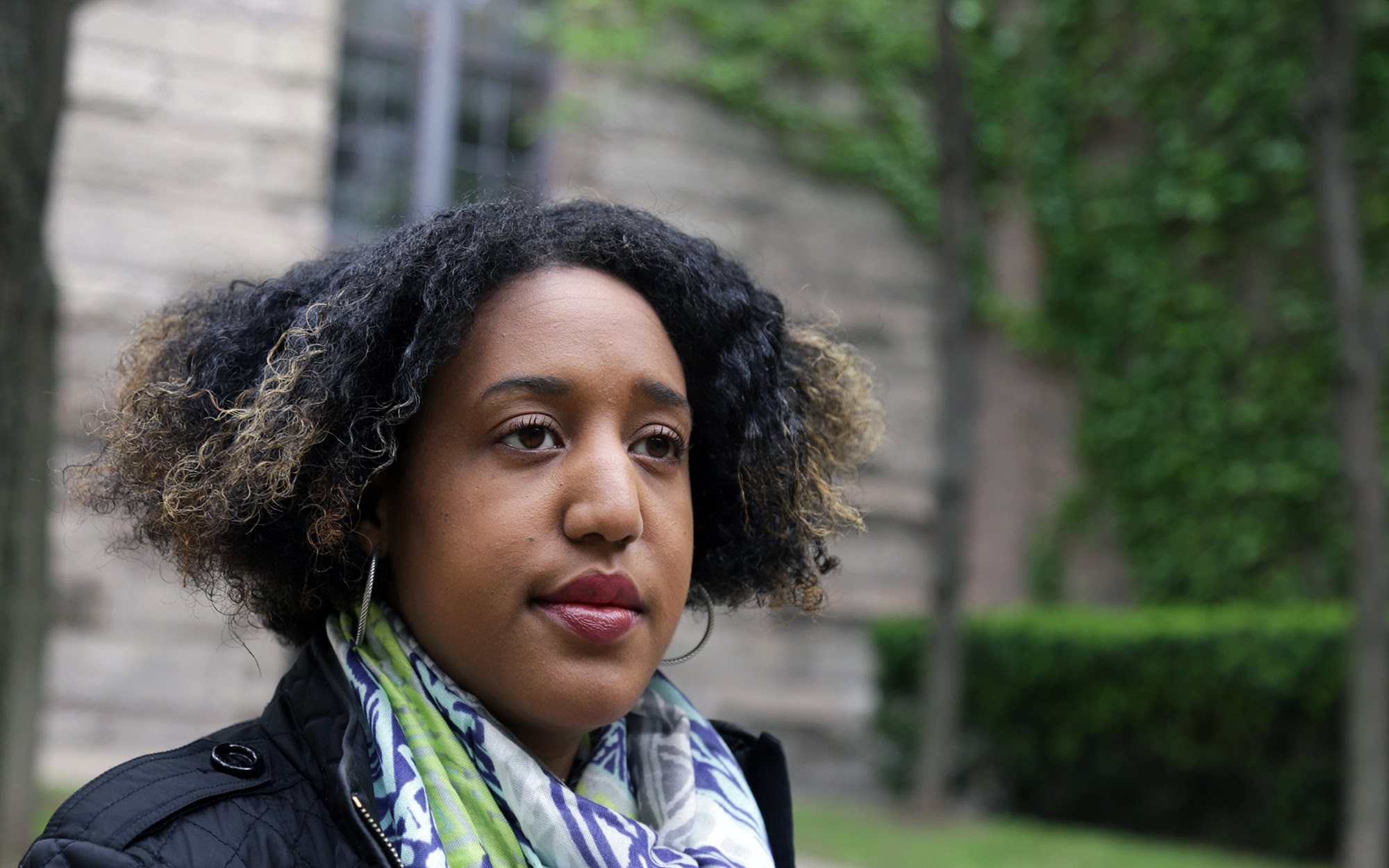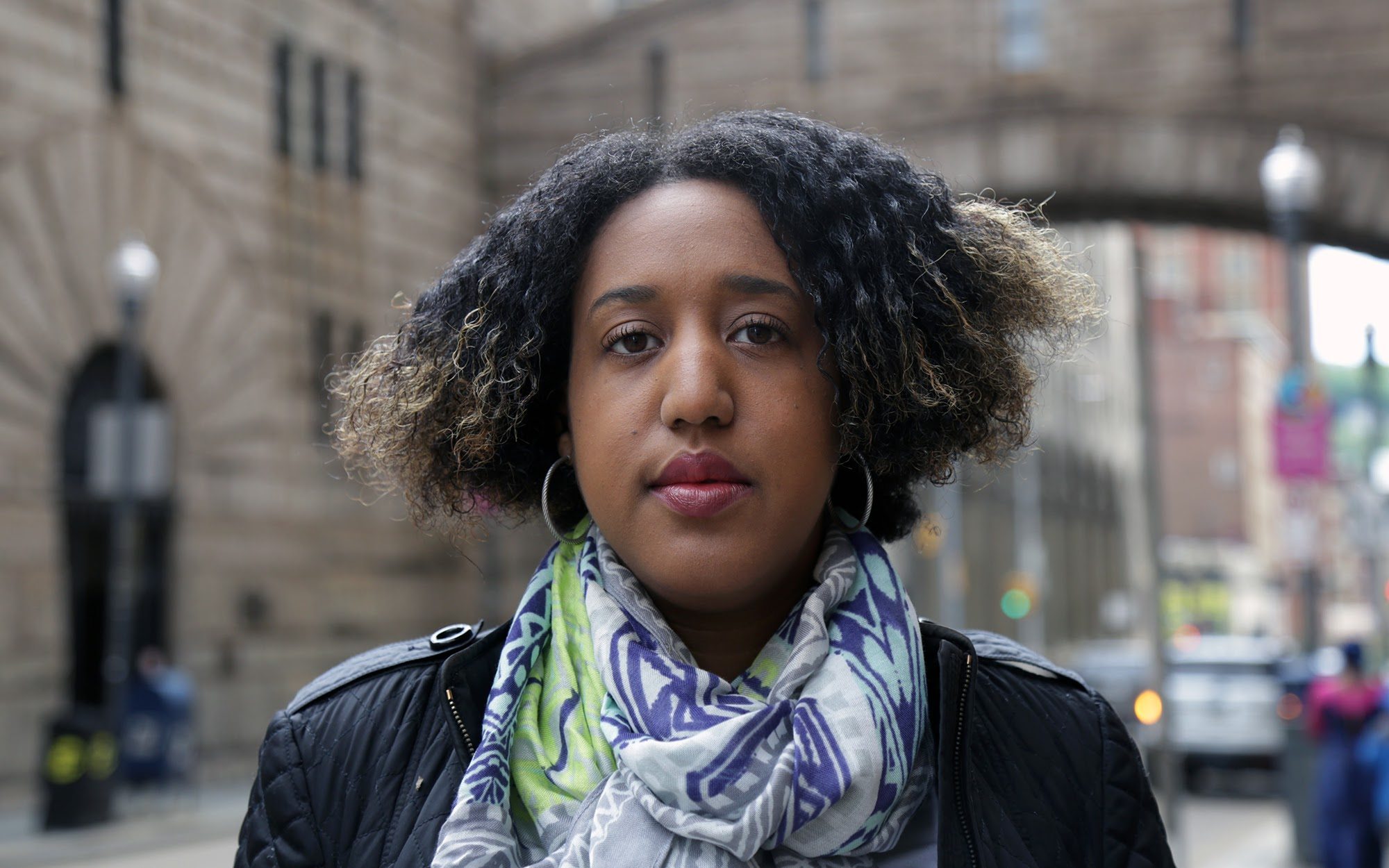A typical day in the family courthouse consists of hallways filled with parents and children, all waiting anxiously to have their cases heard. Family dynamics can play a significant role in why a juvenile is actually in the juvenile court system, but they also have a strong influence on what occurs inside the courtroom. It’s heartbreaking enough to see a child looking around to see no relatives around. Even worse is when a family member shows up only to ensure the youth doesn’t go home with them. On those days, I, as a former assistant district attorney in Allegheny County, would glimpse into the lives of broken families.
These stories were prevalent, but the most devastating to me were those involving female juvenile offenders. Of course, it wasn’t lost on me that the girls I’m referring to in these situations were practically all black, like me.
The sounds of hearing a grandmother tell a judge, “I don’t know where she can go, but she can’t come home with me,” or a simple, “No,” to the inquiry of whether she can go home doesn’t leave you when you leave the courthouse. Then, there were the girls who identified as LGBT and were not “accepted” back home because of their sexual or gender orientation. One mother stated that her daughter knew she didn’t agree with “that stuff,” and she couldn’t come home until she changed. These stories tend to be more crushing mainly because, unlike some of the boys who were still trying to show bravado, tears from both mother and daughter filled the room. With the exception of the mother who stated her lesbian daughter couldn’t go home until she “changed,” the mothers in the courtroom were crying nonstop as they exhibited a form of tough love on their daughters. Tissue boxes were readily available. Through all the emotions the daughters were feeling, however, I don’t think the girls understood the parent’s actions as tough love. The girls would ask through tears, “Why don’t you want me? What did I do? Why can’t I come home?” This lack of understanding only added to the feelings of rejection the girls may have already had.

Jennifer Price talks about the broken family structures she saw in juvenile court. (Photo by Ryan Loew/PublicSource)
In some ways, I could empathize with the mothers. They were usually single mothers, doing their best. Unfortunately, their best didn’t appear to be good enough. It hadn’t been too long since I’d been a single mother. I have a daughter who is around the same age as the girls in the courtroom. I knew what they were dealing with, in terms of having a daughter going through puberty. I know when you’re a young mother especially, typical issues with children can be intensified by the drama that come with youth and motherhood. I was just lucky to have opportunities not available to them.
For starters, I had significant family support that allowed me to finish both my undergraduate and law school degrees, so I did not have to work more than one job. I never took that assistance for granted. There were a few times, I remember thinking, that with one or two different decisions I, too, could have been in a juvenile courtroom. I say that to emphasize that I think it only takes a few missteps to begin the domino effect that can lead you down the wrong path. Those one or two wrong decisions may not land you in court, but they could open the door to the cyclical nature of the juvenile justice system.
For example, if tardiness or truancy was an issue at school, sometimes you’d hear mothers in the courtroom talking about how they have to leave for work before their daughter gets on the bus. So the mom expected the daughter to be mature enough to get on the bus and go to school on her own, or listen to an older sibling.
I had a similar experience at one time. For a period of about six months or so, when I first started working at the District Attorney’s Office, I was assigned to handle summary appeals cases, mostly minor traffic offenses. In order to get there early enough to organize the files and talk to officers about the cases, I had to get to work by 8 a.m. — leaving before my daughter got on the bus. I sought help from two different neighbors whose kids also rode the bus with my daughter to make sure she still attended school. Then, I eventually made the decision that I was not going to get to the courthouse by 8 a.m. I had the flexibility in my job to make that decision without it affecting my position or compromising my overall job security. The mothers I saw in the courtroom did not have that luxury. They had to get to work on time, without question, in order to get a paycheck. Some of the mothers worked hourly jobs, where every minute literally counted and reflected in their paychecks.
Not once did I question whether the parents in the courtroom loved their children, but they all had the same facial expressions. Exhaustion from working two or three jobs only to be met with the sporadic emotions of a young person. Sometimes, the expression read, “I am overwhelmed.” Parenting doesn’t come with a handbook, and you can only teach what you know.
Nevertheless, from a prosecutor’s perspective, you were certain you would see that juvenile again. That her negative behavior would be reinforced when she turns around and sees either no one in the galley or someone who doesn’t want her anymore. Rejection becomes the foundation for anger and resentment. They build up, and the cycle of problems continue.
As a mother, I could see pain and frustration from both the mothers and daughters in the room. Neither could understand how they got there or how to move on. I wasn’t really sure how to either, knowing that the next day I would quite possibly see it all over again.
Jennifer Price is a special education and criminal defense lawyer who advocates for people’s civil rights and constitutional rights. She can be reached at 724-519-7587.
